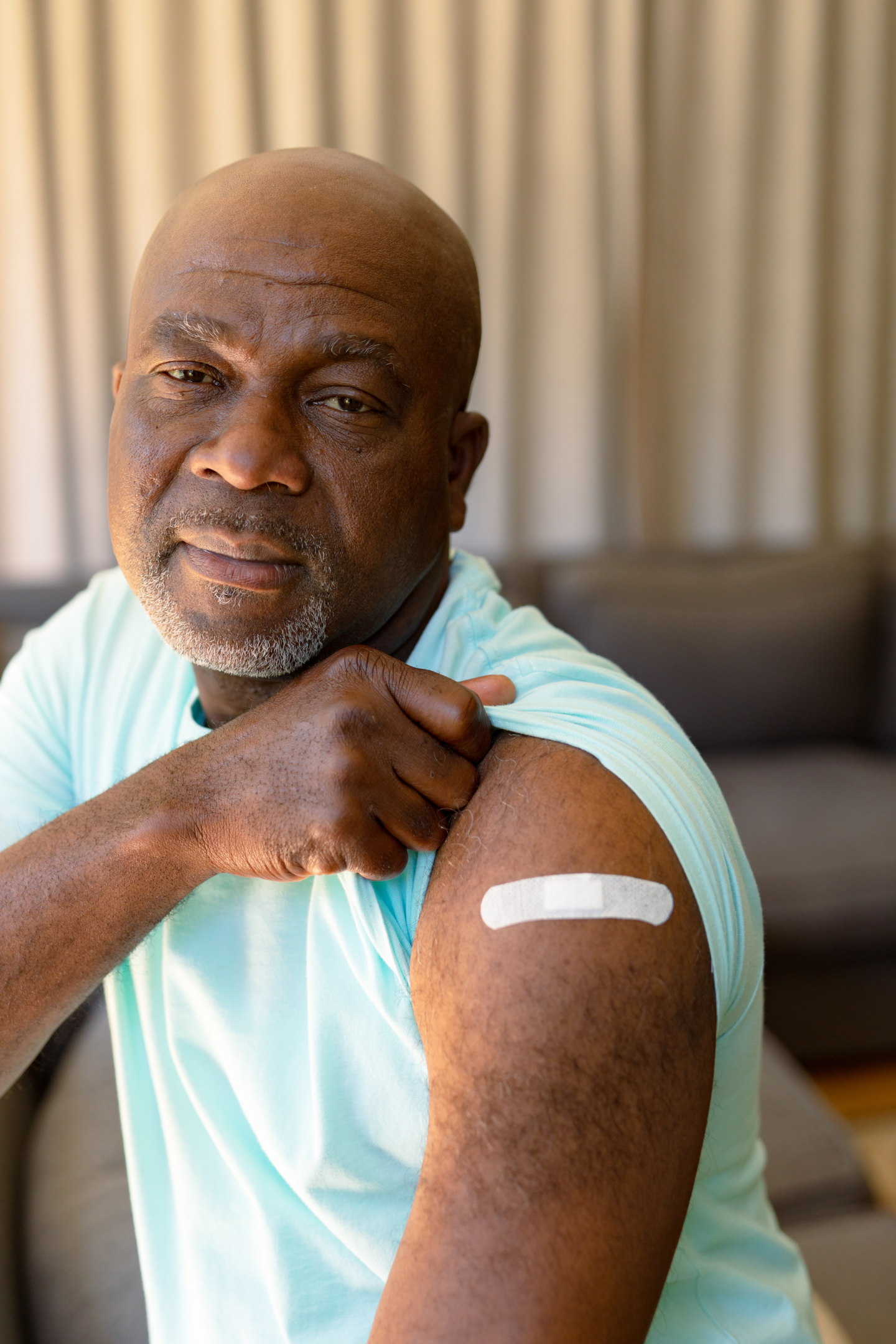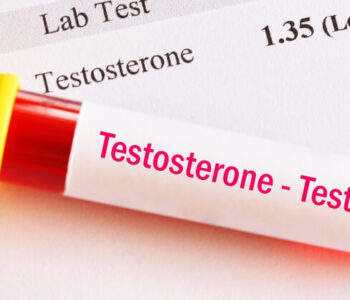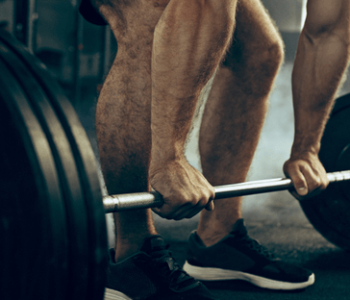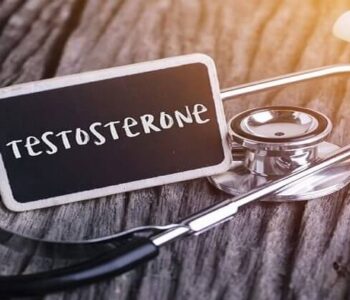

Dr Chris Airey
Despite age being a privilege, let’s face it, nobody likes getting older. As we age, our bodies start to change, and not necessarily for the better. As men, we can start to gain weight and find it hard to maintain our usually trim physique, experience low moods and even lose interest in sex. While you may be inclined to put all of these effects and more down to your advancing years, the reality is that there’s something else that could be to blame – low testosterone.
Low testosterone can cause lots of unpleasant and even embarrassing symptoms. Fortunately, these can be avoided thanks to testosterone injections. Let’s find out more about what does testosterone does and how testosterone injections can help you to feel younger and stronger than you have done in years.
What is testosterone?
Testosterone is a hormone and the main androgen, making it responsible for the development of male characteristics at every stage of life. This ranges from the formation of testicles and male sex organs in the womb, to increased facial and body hair, additional muscle mass and bone density and sexual function and libido.
In men, testosterone is primarily produced in the testicles, although small amounts are also created by the hormone-producing organs called the pituitary gland and adrenal glands.
Testosterone levels naturally change with age, increasing during puberty and peaking at around 20-25 years of age. After this, it’s normal for testosterone levels to fall at a rate of 1-2% per year. Nevertheless, some men experience a more rapid decline, causing them to suffer from symptoms of low testosterone earlier than they might have expected.
What are the symptoms of low testosterone?
Not all men will experience symptoms of low testosterone. Of those that do, all too often they tend to put these signs down to simply getting older. Nevertheless, it can be helpful to know the symptoms that could indicate that you have testosterone deficiency. They include:
- Reduced sex drive
- Erectile dysfunction
- Loss of body hair
- Loss of bone density, making breaks more likely
- Increased body fat and/or weight gain
- Low mood/depression
If you aren’t sure if you are experiencing low testosterone, you can ask your GP to check your hormone levels. This can be done with a simple blood test.
“Normal” testosterone levels in men are classed as being anywhere from 10 to 35 nano moles per litre (mol/L).

Benefits of testosterone injections
Testosterone injections are a recommended treatment for some men whose bodies are no longer making enough natural testosterone. This condition is also known as hypogonadism.
As their name suggests, testosterone injections work by increasing your natural testosterone levels. They do this through supplementation – introducing artificial testosterone to your body. If you have normal levels of testosterone, there’s unlikely to be any real benefits of this treatment. In fact, you could increase your risk of experiencing problems. However, there are a number of proven benefits of testosterone injections for men with diagnosed testosterone deficiency.
Healthier heart
Low testosterone levels have been linked to an increased risk of various cardiovascular problem. As a result, boosting your testosterone to normal levels could reduce your risk of heart disease or a heart attack and improve your overall heart health.
Reduced body fat, increased muscle mass
Loss of muscle mass and excess body fat are common effects of low testosterone levels. Supplementing your natural testosterone can help reverse these effects, particularly if you combine it with a healthy diet and strength training exercises.
Stronger bones
Loss of bone density is another problem with diminishing testosterone levels. Testosterone plays an important role in keeping bones strong, which can also support athletic performance. Without it, you are more likely to suffer from fractures if injured, and you could even experience a condition called osteoporosis which is characterised by weak bones.
Better sex drive
Not in the mood for sex as often as you used to be? This is a common sign of low testosterone. This is because testosterone is also crucial for libido, and many men with low levels of testosterone can experience a low sex drive and even erectile dysfunction.
Types of testosterone injections
It’s important to speak with your doctor before you consider starting testosterone injections. If your testosterone levels fall within normal ranges, you may not be suitable for this treatment.
Testosterone injections are also known by many other names, including testosterone therapy, testosterone replacement therapy (TRT for short) and testosterone treatment. They all essentially refer to the same thing, except testosterone injections also refer to the method with which the treatment is administered.
In the UK, there are four different types of testosterone injections. These are:
- Testosterone Nebido
- Testosterone Sustanon
- Testosterone Cypionate
- Testosterone Enanthate
The key difference between them is how quickly they act and how long they last within the body. However, they also have different carrier oils. For example, Sustanon is made with peanut oil, making it unsuitable for anyone with a peanut allergy, while Enanthate is made with sesame oil. You should never purchase any sort of hormone therapy, including testosterone injections, without first consulting with your healthcare provider.
How to administer testosterone injections
Testosterone injections are usually injected into the leg, glute muscle, or in the fatty stomach tissue (subcutaneous). The exact dosage and frequency will depend on the type of testosterone injection you have chosen. Always defer to your healthcare provider for specific information.

Side effects of testosterone injections
It’s important to be aware that all medications come with side effects, and hormone therapy like testosterone replacement therapy is no exception. However, for the vast majority of men, if any side effects are experienced, they are very mild. They can include:
- Acne
- Breast swelling
- Difficulty falling or staying asleep
- Mood swings
- Sleep apnea or worsening sleep apnea
- Limiting sperm production or causing testicles to shrink
- Risk of a blood clot owing to excess red blood cell production
Some men may also experience pain, redness and bruising at the site of their injection. While they are rare, it’s also possible to experience allergic reactions to testosterone therapy, particularly if you have any other medical conditions. For this reason, again we stress that you should always talk to your doctor before you begin treatment.
Are there any significant risks associated with testosterone therapy?
Testosterone replacement therapy is generally considered very safe provided it is taken with caution and at the correct dose. Problems may occur if these instructions aren’t followed.
In the past, experts believed there to be a link between testosterone therapy and an enlarged prostate or prostate caner. However, more recent research has disproved this and found that testosterone therapy doesn’t increase a man’s risk of developing prostate cancer. Nevertheless, prostate cancer is more likely with advancing age.
There are also some men who have been known to abuse testosterone replacement therapy in order to develop excessive muscle and enhance their physical performance. This is banned in most sports and can be extremely harmful. If you are prescribed testosterone treatment, you should always follow your doctor’s instructions.
Testosterone therapy for transgender individuals
Testosterone therapy isn’t only recommended for men with low testosterone. Hormone therapy including TRT is also often prescribed for trans men as part of their gender transition programme. In this case, it may be referred to as masculinizing hormone therapy. This is because testosterone treatment can alter physical attributes and make them more closely align with the gender identity of a trans man. Examples of male characteristics which can be stimulated by testosterone treatment include facial hair, deepened voice, increased muscle mass and redistribution of body fat.
If you are experiencing testosterone deficiency, there’s no doubt that testosterone injections can help you to feel younger and stronger than your years. However, as with any medical treatment, we advise you to seek the advice and support of your doctor before starting a course of testosterone treatment.










